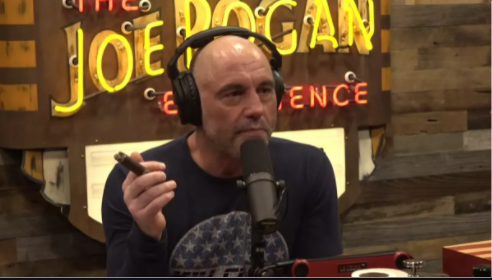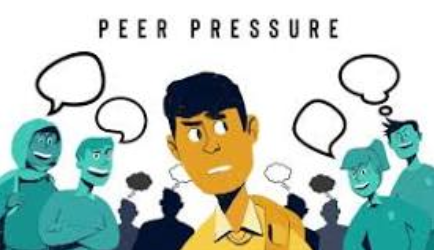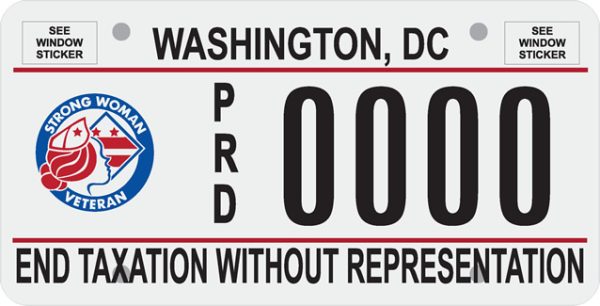Joe Rogan Faces Backlash After Spreading Misinformation

February 17, 2022
Joe Rogan is coming under fire for remarks he is saying on his popular podcast “The Joe Rogan Experience” (JRE). The commentary podcast host, who has a $100 million deal with Spotify, has a history of saying controversial comments on his show. Viewers have found him making false claims about COVID-19 and vaccinations on multiple occasions on his show as well as having controversial guests on his show.

On his show, he said that “healthy young people and children don’t need vaccines,” calling vaccines a type of “gene therapy,” and many more incorrect claims. Furthermore, he had Robert Malone as a guest on his podcast. Robert has a past of saying false information about the pandemic and has even had his Twitter account deleted as of a result of his words. According to Insider, Malone “previously contributed to research on messenger RNA technology but has since made false claims that ‘mass psychosis’ caused a ‘third of the population to be ‘hypnotized’ into getting vaccinated.” Dr. Anthony Fauci, America’s infectious disease expert, even took the time to call out Rogan and his actions to say that everyone needs to get vaccinated to protect themselves and others, a claim that Rogan has consistently denied in saying that if you are healthy, there is no need to be vaccinated.
Users of the music streaming app are calling for Spotify to do an investigation into Joe Rogan and his show to assess what he is saying on his show. Ultimately, they want his show removed to keep the public in the right direction of the correct health information.
A group of over 270 doctors wrote an open letter to Spotify in response to Rogan’s claims. The letter says, “With an estimated 11 million listeners per episode, JRE, which is hosted exclusively on Spotify, is the world’s largest podcast and has tremendous influence.” The doctors go on to say “Spotify has a responsibility to mitigate the spread of misinformation on its platform, though the company presently has no misinformation policy.” The letter further adds that “one of two recent JRE guests who has compared pandemic policies to the Holocaust. These actions are not only objectionable and offensive but also medically and culturally dangerous.” Rogan was also called a “menace to public health” by an epidemiologist at the University of Illinois (Chicago), Katrine Wallace. Finally, the letter ends, “This is not only a scientific or medical concern; it is a sociological issue of devastating proportions and Spotify is responsible for allowing this activity to thrive on its platform.”
Daniel Ek, Chief Executive Officer of Spotify, released a statement on behalf of the corporation. Ek says, “It is important to me that we don’t take on the position of being a content censor.” He goes on to say that the company wants to aim to “direct listeners to a hub filled with authoritative health information.” The Spotify company has released that they do not support the words that Joe Rogan has said, despite the fact they decide to keep him on their platform. Spotify has agreed to put labels on podcast episodes that contain information about the pandemic so people can be directed to the right sources.
After these remarks from Rogan came to light, popular music artists are calling for their music to be removed from Spotify. Neil Young, the artist of songs like “Harvest Moon” and “Cowgirl in the Sand,” had his music removed from the streaming app as a personal choice. Young released a statement saying “Spotify represents 60% of the streaming of my music to listeners around the world … Yet my [record label] stood with me, recognizing the threat the COVID misinformation on SPOTIFY posed to the world — particularly for our young people who think everything they hear on SPOTIFY is true.” He also went onto say that Spotify is “the home of life-threatening Covid misinformation.”
Young is not the only musical artist to take this action. Joni Mitchell, India Arie, David Crosby, Stephen Stills, Graham Nash, and many others have taken that step to remove their music from the platform.
Joe Rogan released an apology video via his Instagram account about his remarks. Rogan goes on to thank Spotify by saying, “I want to thank Spotify for being so supportive during this time and I’m very sorry that this is happening to them and that they’re taking so much heat from it.” He goes on to say “I’m not trying to promote misinformation. I’m not trying to be controversial,” he said. “I’ve never tried to do anything with this podcast other than just talk to people and have interesting conversations.” Rogan also stated that he is all for Spotify’s decision to add the content warning for any podcast episode that contains information about the pandemic. He also agreed to “try harder” in adding balance to his show as he is saying “I do all the scheduling myself, and I don’t always get it right.”
by saying, “I want to thank Spotify for being so supportive during this time and I’m very sorry that this is happening to them and that they’re taking so much heat from it.” He goes on to say “I’m not trying to promote misinformation. I’m not trying to be controversial,” he said. “I’ve never tried to do anything with this podcast other than just talk to people and have interesting conversations.” Rogan also stated that he is all for Spotify’s decision to add the content warning for any podcast episode that contains information about the pandemic. He also agreed to “try harder” in adding balance to his show as he is saying “I do all the scheduling myself, and I don’t always get it right.”
After interviewing a group of students to gather opinions on the matter, it has been determined that high school students do not know who Joe Rogan is and the situation that he is in. Some are familiar with him but don’t know what his role is in the situation. Being further asked about cancel culture, which is very relevant in the Joe Rogan situation, one of the people interviewed said “It’s stupid because at some point it is people getting canceled for small mistakes when careers get ruined. If they keep making mistakes, they deserve to get their platform taken away.” When all of the students interviewed were asked if they would cancel someone that did something equal to what Joe Rogan did, all of them said that they would cancel somebody who did that. In terms of spreading false information about health matters such as a pandemic, a student said, “It is rooted in what they were thinking and saw, maybe not done intentionally, but if it’s on purpose, it’s bad.”
“The Joe Rogan Experience” is still on Spotify, however, Spotify has taken the step to remove over 100 episodes that contain false remarks/controversial statements in an effort to help listeners be directed to the correct material.












